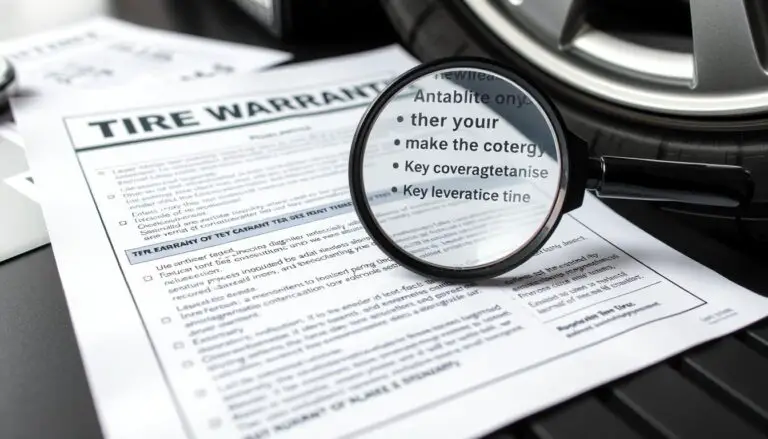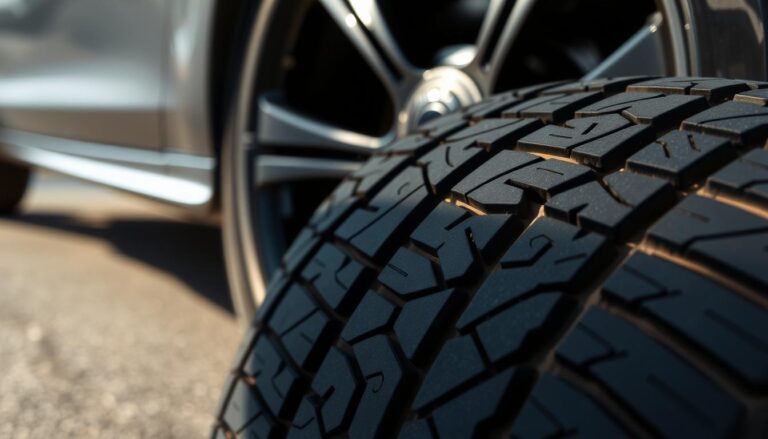Understanding tire mounting costs before heading to a service center can save you from unexpected expenses and help you budget appropriately. Whether you’ve purchased new tires online or need to swap out seasonal wheels, knowing the average price range and what factors influence the final bill puts you in a better position to make informed decisions. This comprehensive guide breaks down everything you need to know about tire mounting costs across the United States.
What Does Tire Mounting Include?
Tire mounting is the process of installing a tire onto a wheel rim. This essential service requires specialized equipment and expertise to ensure proper fitment and safety. The basic tire mounting process typically includes:
- Removing the wheel from your vehicle
- Taking the old tire off the rim using a tire machine
- Installing the new tire onto the wheel rim
- Inflating the tire to the manufacturer’s recommended pressure
- Reinstalling the wheel onto your vehicle
- Properly torquing the lug nuts to specification
It’s important to note that tire mounting is just one part of the complete tire installation process. While some shops advertise low mounting costs, the final bill often includes additional necessary services like balancing, valve stem replacement, and disposal fees for your old tires.
Average Tire Mounting Costs Nationwide
The national average cost for basic tire mounting ranges from $15 to $35 per tire. However, this price can vary significantly based on several factors including your location, the type of vehicle you drive, and where you choose to have the service performed.
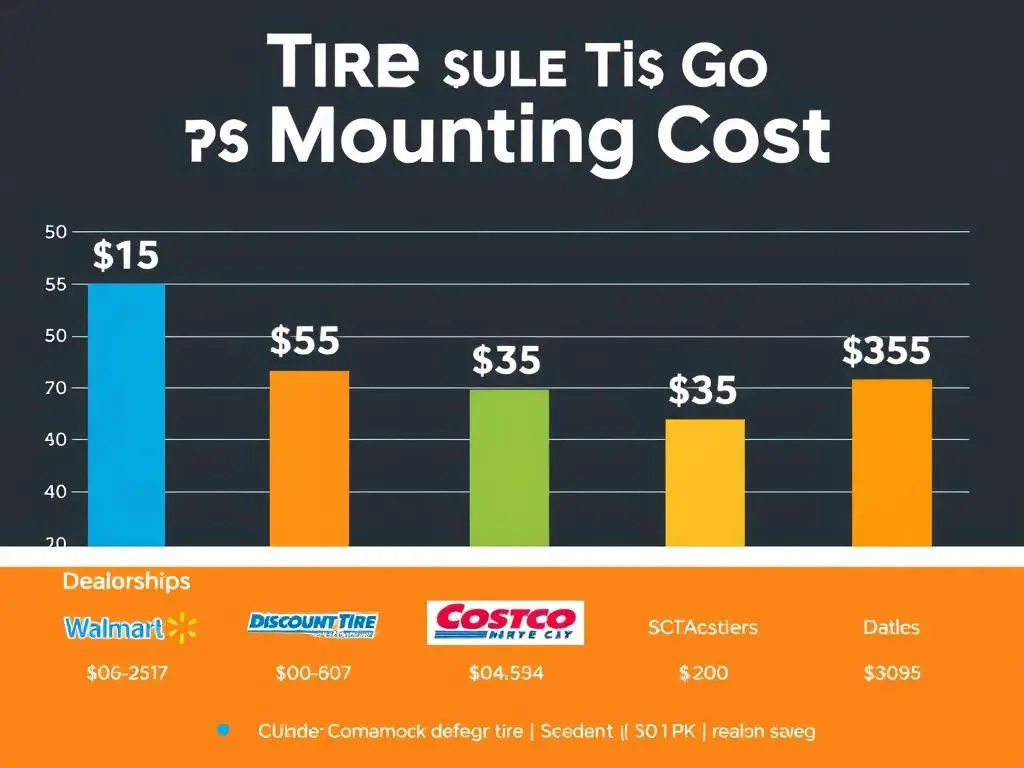
| Service Provider | Basic Mounting Cost (Per Tire) | Full Installation (Mount + Balance) | Additional Notes |
| Walmart | $15 | $25 | Lower cost if tires purchased from Walmart; $10 extra per tire for outside purchases |
| Discount Tire | $21 | $21 | Balancing included in mounting price; $2.75 disposal fee per tire |
| Costco | $20 | $20 | Members only; includes lifetime rotation, balancing, and inflation checks |
| Sam’s Club | $20 | $20 | Members only; includes road hazard warranty and roadside assistance |
| Pep Boys | $25-$30 | $30-$35 | Includes disposal fees and TPMS service; one year roadside assistance |
| Dealerships | $25-$45 | $40-$80 | Higher costs but may include vehicle-specific expertise |
Factors That Affect Tire Mounting Costs
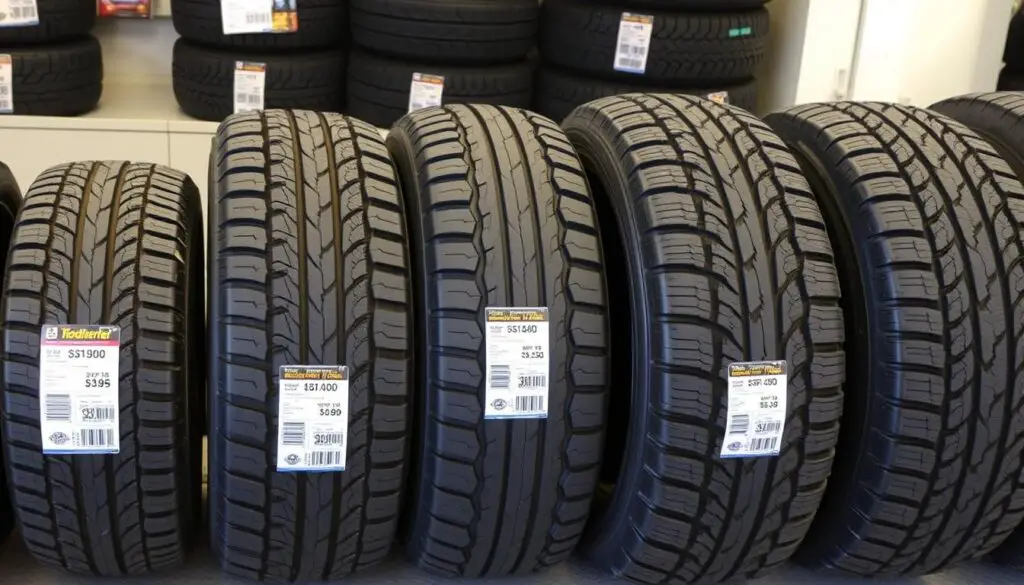
Tire Size and Vehicle Type
Larger tires, such as those found on trucks and SUVs, typically cost more to mount than smaller passenger car tires. This is due to the additional labor and equipment needed to handle heavier, larger diameter tires. Some examples:
- Standard passenger car tires: $15-$25 per tire
- SUV and crossover tires: $20-$30 per tire
- Light truck tires: $25-$35 per tire
- Specialty or oversized tires: $35-$45+ per tire
Service Location Type
Where you choose to have your tires mounted significantly impacts the cost:
- Dealerships typically charge premium prices ($25-$45 per tire) but may offer vehicle-specific expertise
- Independent tire shops often have competitive pricing ($18-$30 per tire) and personalized service
- National chains like Discount Tire, Walmart, and Costco offer standardized pricing ($15-$25 per tire) and frequent promotions
- Warehouse clubs (Costco, Sam’s Club, BJ’s) offer member discounts but require membership
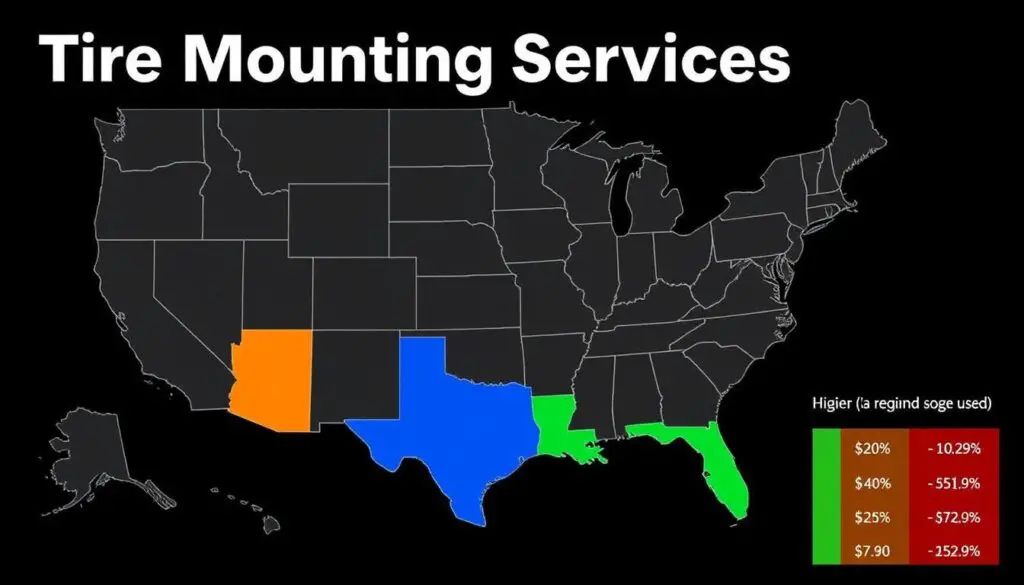
Geographic Location
Your location plays a significant role in determining tire mounting costs:
- Urban areas generally have higher labor rates, increasing mounting costs by 10-20%
- Rural areas often offer more competitive pricing due to lower overhead costs
- Regional differences exist, with Northeast and West Coast typically having higher prices than the Midwest and South
- Local competition can drive prices down in areas with multiple tire service providers
Pro Tip: If you live near the border between states, check prices on both sides. Different state taxes and labor rates can create significant price differences for the same service.
Additional Fees to Consider
The advertised tire mounting cost rarely tells the complete story. Be prepared for these potential additional charges that can significantly increase your final bill:
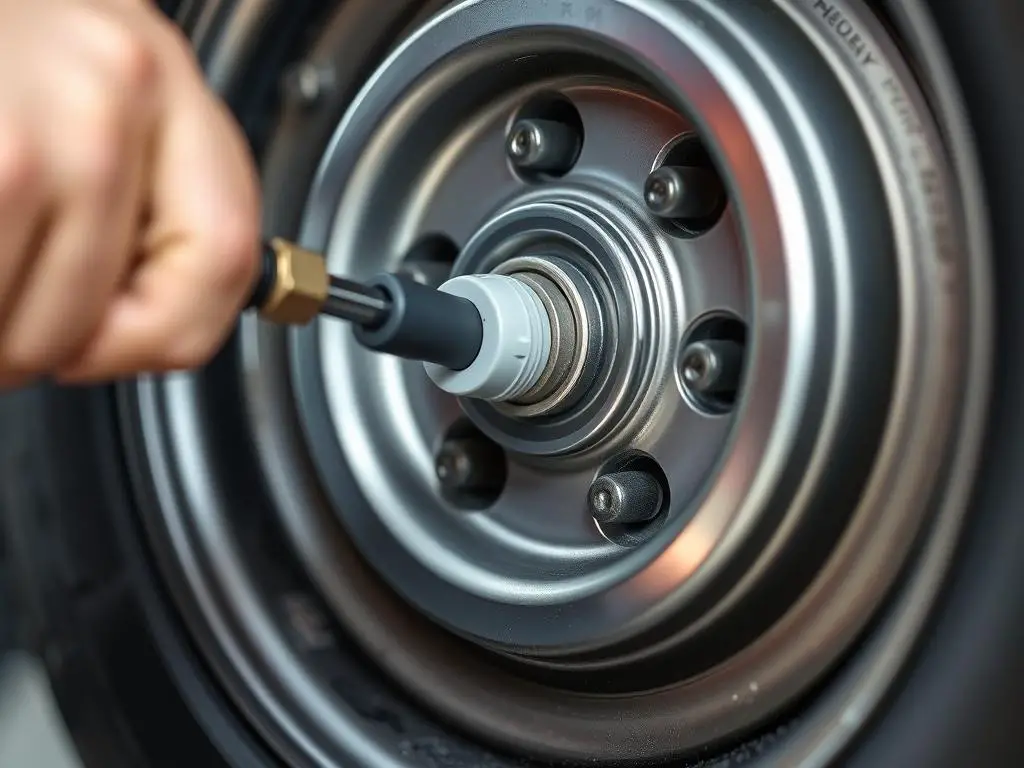
| Additional Service | Typical Cost Range | Is It Necessary? |
| Valve Stems | $2-$5 per tire | Yes – should be replaced with new tires |
| Wheel Weights | $1-$3 per tire | Yes – required for proper balancing |
| Tire Disposal Fee | $2-$5 per tire | Yes – unless you take old tires with you |
| TPMS Service Kit | $5-$10 per sensor | Yes – for vehicles with TPMS systems |
| Wheel Balancing | $10-$15 per tire | Yes – essential for proper tire wear and ride quality |
| Emergency/After-Hours Service | $20-$50 additional | Only in urgent situations |
“Always ask for an itemized estimate before authorizing tire mounting service. This simple step can help you identify unnecessary charges and negotiate a better overall price.”
Mounting Only vs. Full Installation: Understanding the Difference
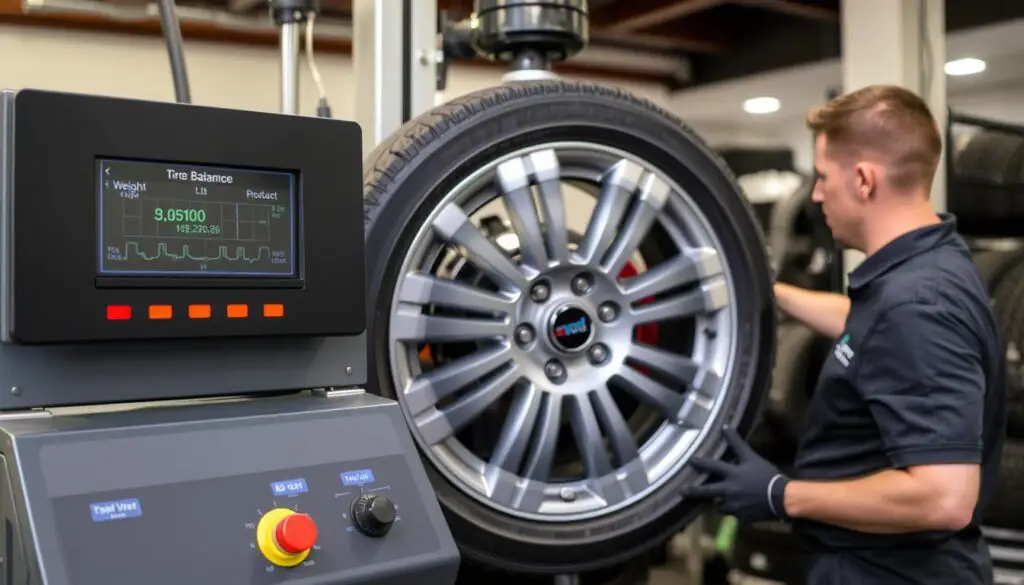
When comparing prices, it’s essential to understand what’s included in the service. “Mounting only” and “full installation” are different service levels with significant price differences:
Mounting Only
Average Cost: $15-$25 per tire
Includes:
- Removing the wheel from vehicle
- Taking old tire off rim
- Putting new tire on rim
- Inflating to proper pressure
- Reinstalling wheel on vehicle
Doesn’t Include: Balancing, valve stems, TPMS service, disposal
Full Installation
Average Cost: $25-$45 per tire
Includes:
- Everything in “Mounting Only”
- Wheel balancing
- New valve stems
- TPMS service (if applicable)
- Old tire disposal
- Lug nut torquing to specification
May Also Include: Road hazard warranty, free rotations
Warning: Choosing “mounting only” without balancing can lead to uneven tire wear, vibration issues, and shortened tire life. The savings rarely justify the potential problems and premature tire replacement costs.
When Do You Need Tire Mounting Service?
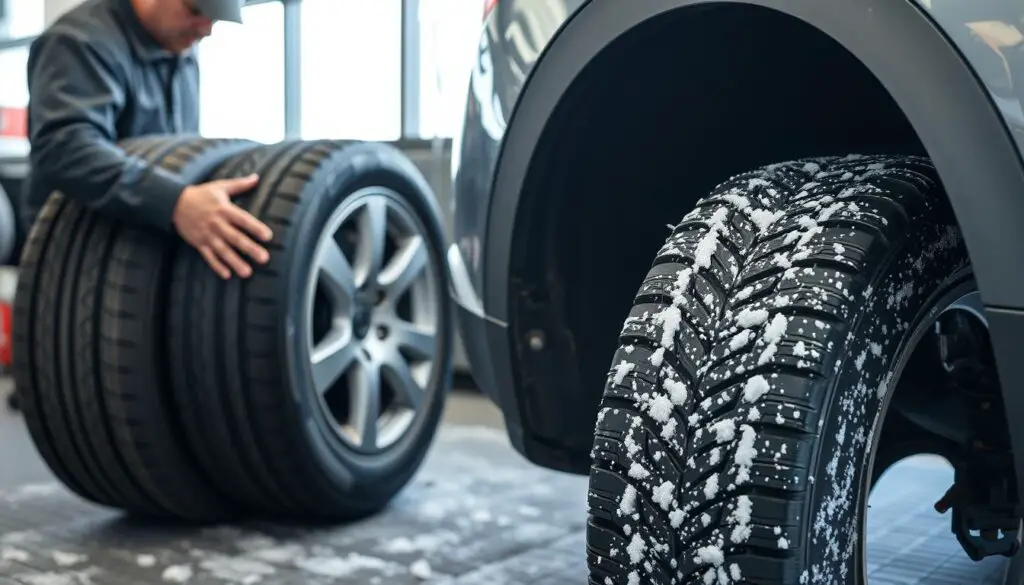
New Tire Purchase
The most common reason for tire mounting is when you purchase new tires, whether online or in-store. Even tires bought online need professional mounting unless you have specialized equipment.
Seasonal Tire Changes
If you use different tires for winter and summer, you’ll need mounting service twice yearly. Some drivers keep two sets of wheels to reduce mounting costs.
After Tire Repairs
Major repairs often require dismounting the tire to fix internal damage. Once repaired, the tire needs to be remounted and balanced.
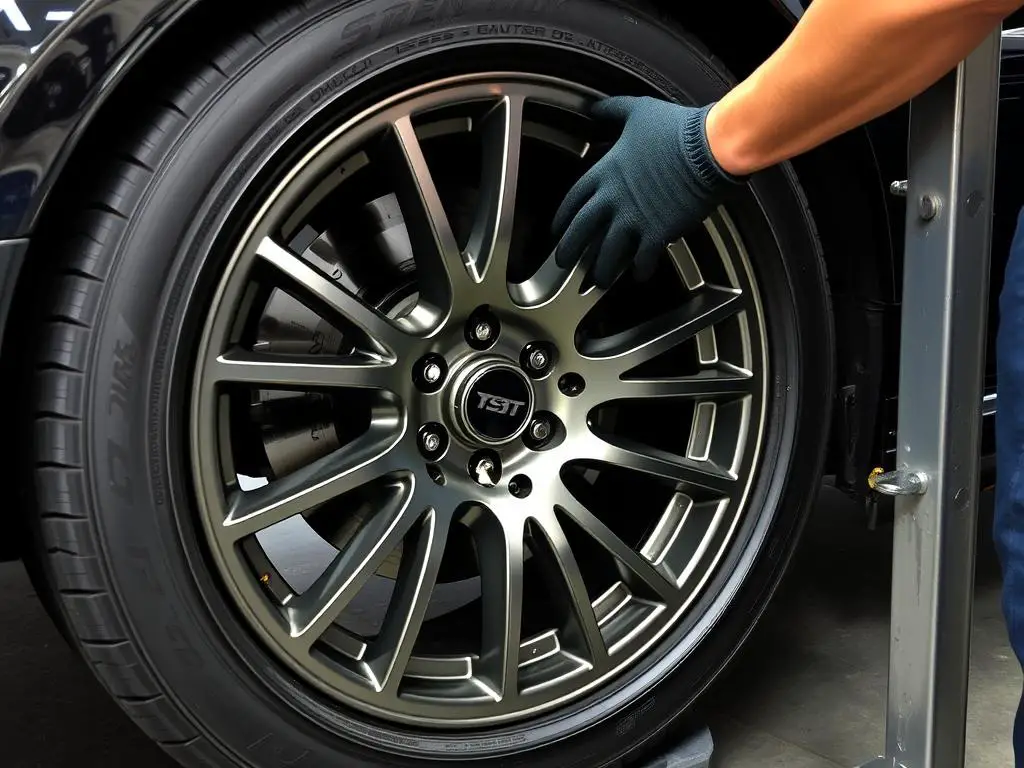
Other Scenarios Requiring Tire Mounting
- Rotating tires from one position to another (front to back, side to side)
- Upgrading to different tire sizes or types
- Switching between street tires and track/off-road tires
- Installing new custom wheels
- After purchasing a used vehicle with worn or mismatched tires
Money-Saving Tips for Tire Mounting
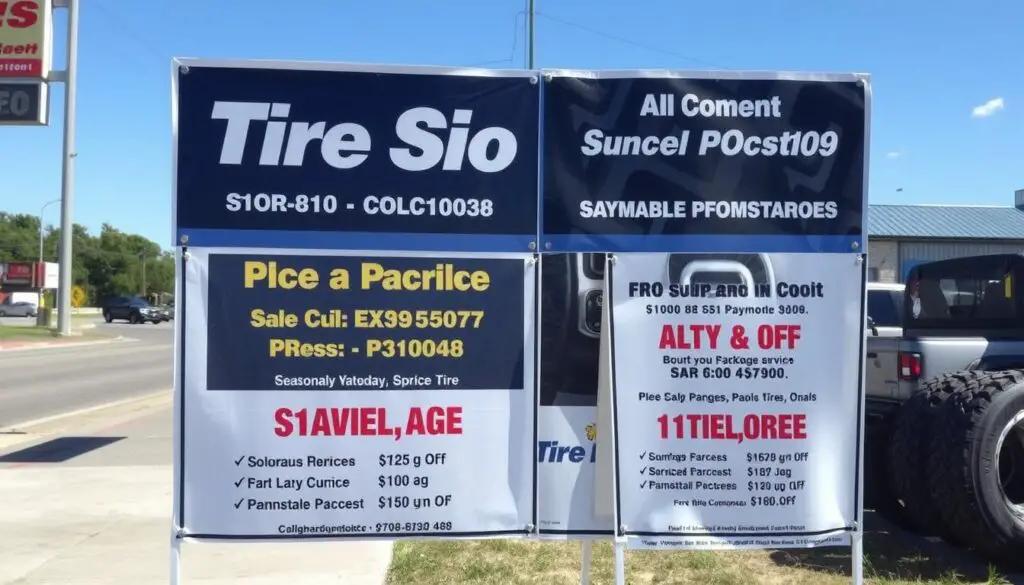
Package Deals and Promotions
- Purchase tires where you’ll have them mounted – many shops offer free or discounted mounting with tire purchase
- Look for seasonal promotions – many shops offer specials during spring and fall when demand for tire changes increases
- Bundle services – combining mounting with alignment or other maintenance often triggers package discounts
- Check warehouse clubs – Costco and Sam’s Club members often receive significant discounts on tire services
Loyalty Programs and Coupons
- Sign up for tire shop email lists to receive promotional offers
- Check manufacturer rebates – tire brands often offer installation rebates
- Use coupon sites and apps to find local tire service discounts
- Ask about price matching – many national chains will match competitors’ advertised prices
- Inquire about lifetime rotation and balancing packages
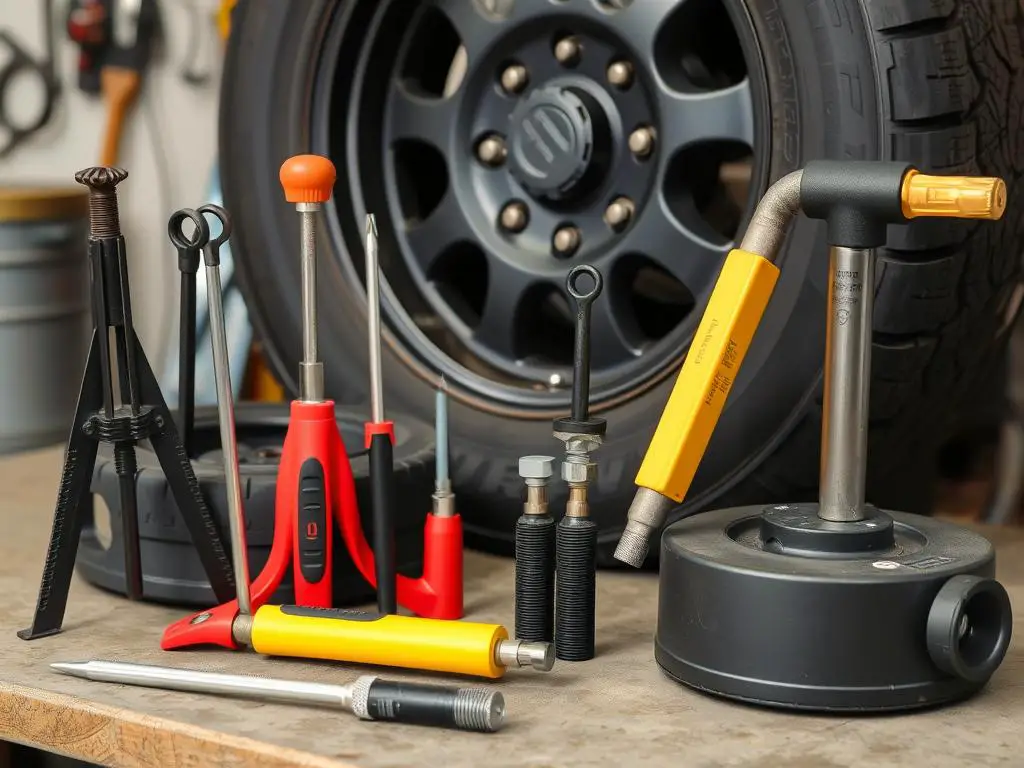
DIY Considerations
While professional mounting is recommended, some enthusiasts consider DIY options:
DIY Pros
- Potential long-term savings for those who change tires frequently
- Convenience of changing tires on your schedule
- Learning valuable automotive skills
- No waiting at service centers
DIY Cons
- Significant upfront investment in proper equipment ($500-$2,000+)
- Risk of damaging expensive wheels or tires
- Difficulty achieving proper balance without professional equipment
- TPMS sensors can be easily damaged without proper tools
- Time-consuming learning curve
Smart Tip: If you switch between winter and summer tires seasonally, consider purchasing a second set of inexpensive steel wheels. This allows you to simply swap complete wheel assemblies without paying for mounting and balancing twice a year.
Questions to Ask Before Tire Mounting Service
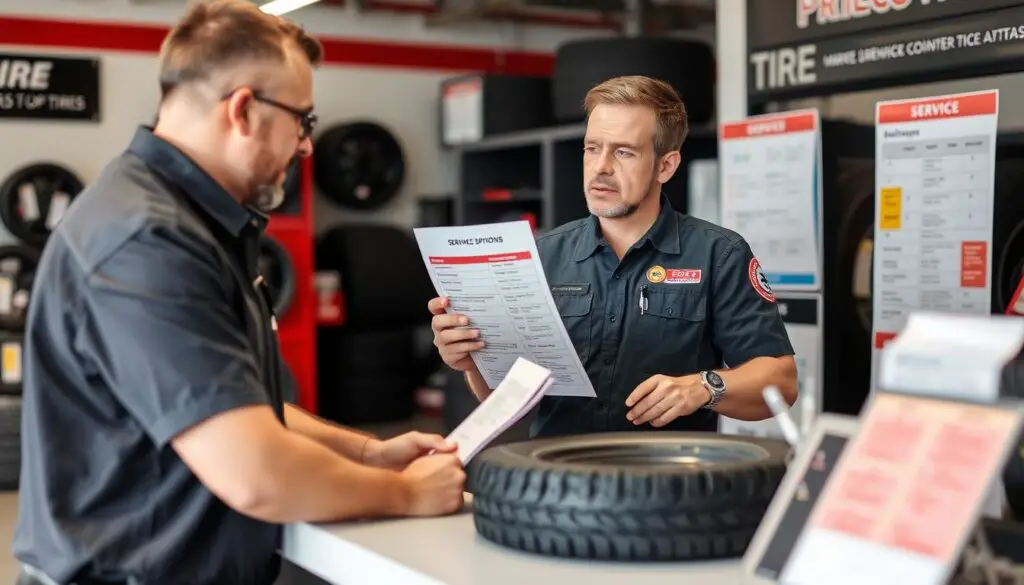
Being prepared with the right questions can help you avoid unexpected costs and ensure you receive quality service. Here are essential questions to ask before authorizing tire mounting:
“What is included in your basic mounting price?”
Clarify exactly what services are included in the quoted price. Does it include balancing, new valve stems, TPMS service, and disposal fees? Or are these charged separately?
“Are there any additional fees I should expect?”
Ask specifically about disposal fees, environmental fees, shop supplies, and any other potential charges that might not be included in the initial quote.
“Do you offer any warranties on the mounting service?”
Some shops offer guarantees on their work, such as free rebalancing if vibration issues occur within a certain timeframe. Understanding the warranty can provide peace of mind.
“How long will the service take?”
Knowing the expected timeframe helps you plan your day. A full set of tires typically takes 45 minutes to 2 hours, depending on the shop’s equipment and workload.
“Do you offer any discounts for multiple tires or returning customers?”
Many shops have unadvertised discounts or loyalty programs that can save you money, especially when mounting multiple tires.
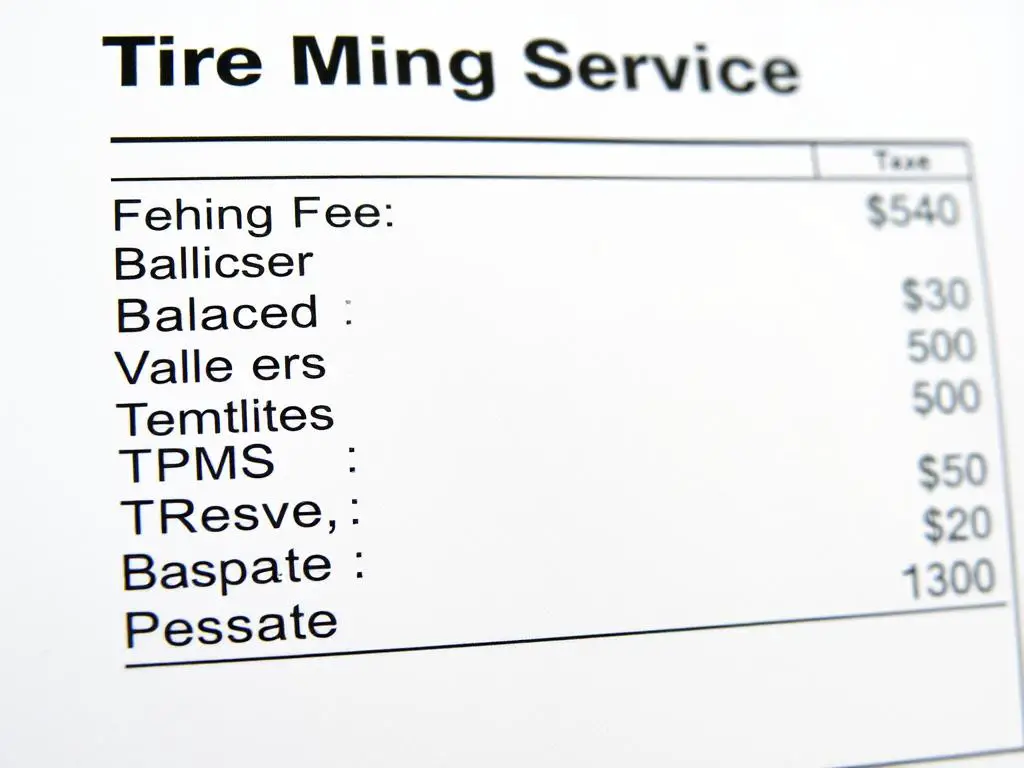
Always request an itemized invoice to understand exactly what you’re paying for
Pro Tip: Ask for a written estimate before work begins. This helps avoid misunderstandings and gives you documentation if the final bill differs significantly from the quoted price.
Beyond Cost: Value Considerations for Tire Mounting
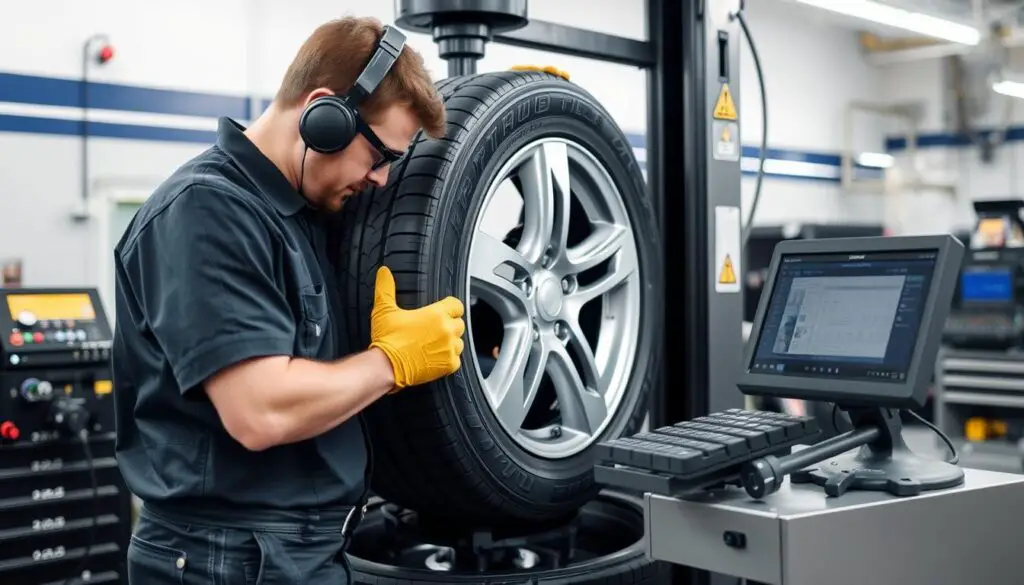
While finding affordable tire mounting is important, the lowest price doesn’t always represent the best value. Consider these factors when choosing a tire mounting service:
Quality Considerations
- Technician Experience: Skilled technicians can prevent damage to expensive wheels and TPMS sensors
- Equipment Quality: Modern, well-maintained equipment provides more accurate balancing and mounting
- Proper Torque Procedures: Correctly torqued lug nuts prevent warped rotors and ensure safety
- Attention to Detail: Proper valve stem installation and careful handling of TPMS sensors
Service Extras That Add Value
- Free Rotation Programs: Many shops offer free lifetime rotations with mounting service
- Road Hazard Warranties: Protection against damage from potholes and road debris
- Courtesy Inspections: Free brake, suspension, and alignment checks during service
- Convenient Hours: Extended service hours that accommodate your schedule
- Quick Service Guarantees: Some shops guarantee service within a specific timeframe
Conclusion: Making an Informed Tire Mounting Decision
Tire mounting costs typically range from $15 to $35 per tire for basic service, with full installation including balancing adding another $10 to $15 per tire. While finding competitive pricing is important, the overall value of the service should be your primary consideration.
Remember that proper tire mounting and balancing directly impact your vehicle’s safety, tire longevity, and ride quality. Investing in quality service from reputable providers often pays dividends through extended tire life and improved driving experience.
Before making your decision, compare total costs (including all fees), check reviews of local service providers, and consider the value-added services that might justify a slightly higher price. By understanding the factors that influence tire mounting costs and asking the right questions, you can find the best combination of price and quality for your specific needs.
